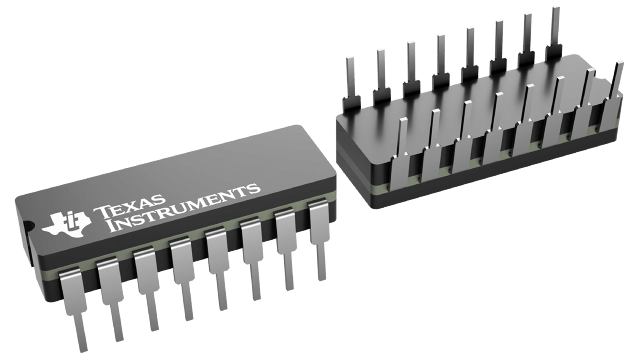
SN54LS378J
ActiveHEX D-TYPE FLIP-FLOPS WITH ENABLE
Deep-Dive with AI
Search across all available documentation for this part.

SN54LS378J
ActiveHEX D-TYPE FLIP-FLOPS WITH ENABLE
Deep-Dive with AI
Technical Specifications
Parameters and characteristics for this part
| Specification | SN54LS378J |
|---|---|
| Clock Frequency | 40 MHz |
| Current - Output High, Low [custom] | 4 mA |
| Current - Output High, Low [custom] | 400 µA |
| Current - Quiescent (Iq) | 22 mA |
| Function | Standard |
| Max Propagation Delay @ V, Max CL | 27 ns |
| Mounting Type | Through Hole |
| Number of Bits per Element | 6 |
| Number of Elements | 1 |
| Operating Temperature [Max] | 125 °C |
| Operating Temperature [Min] | -55 °C |
| Output Type | Non-Inverted |
| Package / Case | 7.62 mm, 0.3 in |
| Package / Case | 16-CDIP |
| Supplier Device Package | 16-CDIP |
| Trigger Type | Positive Edge |
| Type | D-Type |
| Voltage - Supply [Max] | 5.5 V |
| Voltage - Supply [Min] | 4.5 V |
Pricing
Prices provided here are for design reference only. For realtime values and availability, please visit the distributors directly
| Distributor | Package | Quantity | $ | |
|---|---|---|---|---|
| Texas Instruments | TUBE | 1 | $ 13.34 | |
| 100 | $ 11.65 | |||
| 250 | $ 8.98 | |||
| 1000 | $ 8.03 | |||
Description
General part information
5962-8992501 Series
These monolithic, positive-edge-triggered flip-flops utilize TTL circuitry to implement D-type flip-flop logic with an enable input. The 'LS377, 'LS378, and 'LS379 devices are similar to 'LS273, 'LS174, and 'LS175, respectively, but feature a common enable instead of a common clear.
Information at the D inputs meeting the setup time requirements is transferred to the Q outputs on the positive-going edge of the clock pulse if the enable input G\ is low. Clock triggering occurs at a particular voltage level and is not directly related to the transition time of the positive-going pulse. When the clock input is at either the high or low level, the D input signal has no effect at the output. The circuits are designed to prevent false clocking by transitions at the G\ input.
These flip-flops are guaranteed to respond to clock frequencies ranging from 0 to 30 MHz while maximum clock frequency is typically 40 megahertz. Typical power dissipation is 10 milliwatts per flip-flop.
Documents
Technical documentation and resources


